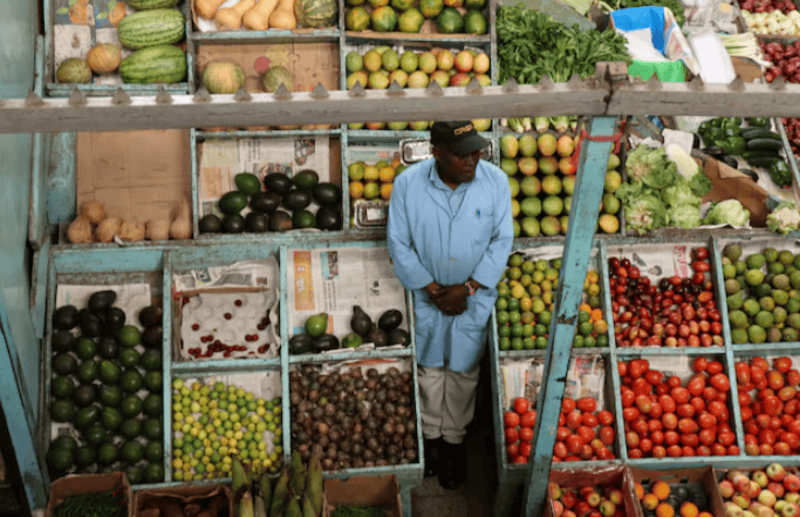The agony of getting Kenyan IDs for Lamu residents bordering Somalia
![The agony of getting Kenyan IDs for Lamu residents bordering Somalia - Residents of Kiunga seeking to get national IDs undergo vetting and registration at the Kiunga social hall. [Photo: Kenya Muslim Youth Alliance]](https://publish.eastleighvoice.co.ke/mugera_lock/uploads/2024/08/Lamu-1.jpg)
The situation is so dire that even acquiring birth documents is a huge struggle for the residents of the affected areas.
Residents of Lamu County living along the Kenya-Somalia border areas are an unhappy lot. They feel that they are like a cursed generation. This is because they have for decades struggled to get many government services that are supposed to benefit from.
One major headache that they have always faced is acquiring national identity cards as they have had to be subjected to many frustrations, including having to pass through vetting committees, before getting approvals.
More To Read
- Two men charged over possession of dozens of national ID Cards, hundreds of SIM cards
- Charlene Ruto misses court hearing in impersonation case as defence pushes for dismissal
- President Trump to support Somalia’s war on terror
- State to roll out ID tracking system to give Kenyans real-time application updates
- Djibouti drone strike kills eight rebel fighters, civilians also affected
- Thirty-seven suspected terrorists arrested in East Africa, says Interpol
Even after approval, some have had to wait for years before getting the IDs while others never get them, making them feel they are treated like second-class citizens in their own country.
Those mainly affected are the residents of Kiunga, Ishakani, Madina on the Kenya-Somalia border; those living in the terror-prone Boni Forest, and those in Witu on the border of Lamu and Tana River counties.
The situation in these areas is so dire that even acquiring birth documents is a huge tussle for the residents.
The majority of children born and growing up in Boni villages don't have birth certificates because they were born at home and not in hospitals.
“We have no hospitals in this place, meaning many of our children are born at home. We have no birth notification to enable us to even get the birth certificate. It’s frustrating for our youth to acquire IDs once they attain the required age,” said former Boni Forest senior chief Yusuf Nuri.
Ali Islam from Kiunga town said he has waited for his ID card for the past two years despite having been vetted, registered and even issued a waiting card.
“I was born and raised here in Kiunga. I am 22 years old. I applied for the ID in 2019 and I was given a waiting card in 2020 but since then I haven’t received the original copy,” Islam told The Eastleigh Voice by phone.
Another resident, 21-year-old Khadija Mahazi of Kiangwe in Boni Forest applied for an ID in 2022 and went through what she termed as a “tiresome and frustrating” vetting process but still is yet to get the document.
The lack of IDs has equally denied many youths in Lamu employment and education opportunities as many cannot process passports to either study abroad or get jobs outside the country.
 National IDs awaiting collection. (Photo: Huduma Kenya)
National IDs awaiting collection. (Photo: Huduma Kenya)National IDs. (Photo: Huduma Kenya)
Fatma Yakub from Witu town is one such resident who missed a scholarship to study in the UK for lack of an ID.
“I have lived in sadness for the past year since I missed the chance to go and study in the UK owing to a lack of an ID card and a passport. It’s unfortunate because such opportunities don’t come twice. I wanted to study economics and I needed an ID to process most of my documents, including the passport,” Fatma said.
Traversing Lamu County has also become a nightmare for many youths, especially those from the border villages as they are often treated as terror suspects for lack of IDs.
Most parts of Lamu, including the border villages of Kiunga, Ishakani and Boni Forest, are all grouped as operation zones because of an ongoing multi-agency security operation in Boni Forest that began in September 2015.
The operation is meant to flush out Al-Shabaab militants believed to be hiding inside the dense forest.
Ahmed Imam from Ishakani village said he had been arrested by security agencies who thought he was a terrorist for lacking an ID.
“I applied for an ID a year back. I am yet to get it. There are innocent Kenyans who need those IDs. I rarely leave the village because I can be arrested,” said Ahmed.
Salim Athman Lali, an activist, accused the state of segregating Lamu youth when it comes to issuing IDs. He said the government ought to dedicate the necessary resources to ensure all eligible Kenyans get IDs without discrimination and on time.
The residents, however, expressed hope with the new system expected to involve chiefs in the registration and issuance of IDs, saying it will hasten the process.
In the new plan, the chiefs will be required to append their thumbprints in addition to their signature to each approved application that must be presented by a parent or a relative by blood for applicants who are 18 years and above.
“Chiefs are best suited for the duty. They know almost everyone and their background in their respective areas of jurisdiction. So, we expect that by doing so, the vetting process won’t be strenuous any more. Chiefs live with us,” said Abdalla Bakari, a resident of Ishakani.
Top Stories Today













































